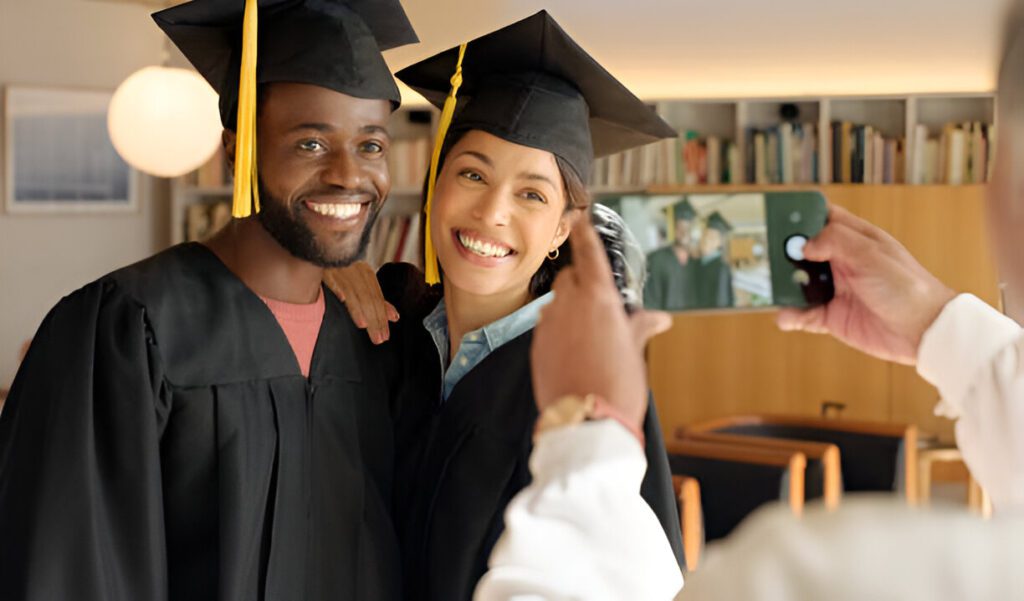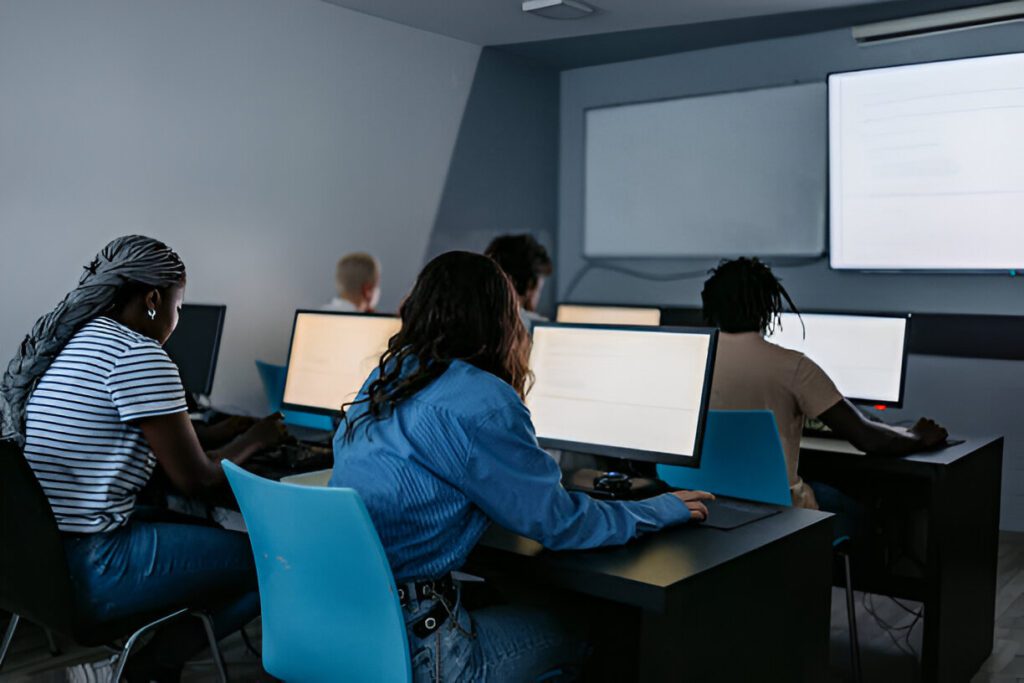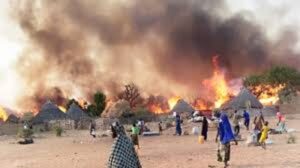Exchange programs between Nigeria and the U.S. have created transformative educational, cultural, and professional opportunities for thousands of participants. These programs facilitate the exchange of knowledge, skills, and ideas between the two nations, fostering mutual understanding and collaboration.
This comprehensive article covers everything you need to know about exchange programs between Nigeria and the U.S., from eligibility requirements to success stories. Ensure to read the article to the end, to get the full detail. Feel free to skip ahead using the table of contents.
Overview of Exchange Programs Between Nigeria and the U.S.
The relationship between Nigeria and the U.S. has long been supported by various exchange programs that promote cross-cultural understanding, leadership development, and professional growth. These initiatives have historically played a significant role in strengthening the diplomatic and cultural ties between the two nations.
A Historical Perspective on Nigeria-U.S. Educational and Cultural Exchanges:
Nigeria-U.S. exchange programs began shortly after Nigeria gained independence in 1960, with the establishment of the Fulbright Program and other initiatives like the International Visitor Leadership Program (IVLP). Over time, these exchanges expanded to include more specialized programs in leadership, technology, and the arts.
The Importance of Bilateral Exchange Programs for Global Cooperation
By providing opportunities for Nigerians to study and work in the U.S., these exchange programs foster global cooperation and development. Nigerian participants return home with valuable skills and networks, contributing to economic, social, and political progress.
Types of Exchange Programs Available for Nigerian Students and Professionals

The exchange programs between Nigeria and the U.S. cater to various demographics, including students, mid-career professionals, and cultural ambassadors. These programs are designed to promote academic achievement, leadership skills, and cultural diplomacy.
Academic Exchange Programs
- Undergraduate and postgraduate students can participate in programs such as Fulbright Foreign Student Program, which offers fully-funded scholarships for advanced degrees in the U.S.
Professional Exchange Programs
- Programs like the Hubert H. Humphrey Fellowship and YALI (Young African Leaders Initiative) provide mid-career professionals with leadership training and opportunities to develop practical skills in their fields.
Cultural Exchange Programs
- Initiatives like the International Visitor Leadership Program (IVLP) and the U.S. Department of State Cultural Programs bring together artists, musicians, and other cultural figures to share and showcase their talents on the international stage.
Government-Sponsored vs. Privately Funded Exchange Programs
While many exchange programs are funded by the U.S. or Nigerian governments, several are privately sponsored by NGOs, corporations, and foundations, ensuring a broad array of opportunities for Nigerian citizens.
Eligibility Criteria for Nigerian Applicants Seeking Exchange Programs Between Nigeria and the U.S.
Eligibility for these programs varies based on the type of exchange and the applicant’s qualifications. Understanding the requirements is crucial to submitting a strong application.
General Eligibility Requirements for Academic Exchange Programs
- Nigerian applicants must hold a bachelor’s degree for most postgraduate exchange programs.
- Strong academic records and demonstrated leadership potential are often required.
- Proficiency in English, demonstrated by TOEFL or IELTS scores, is essential.
Professional Exchange Eligibility
- For programs like the Hubert H. Humphrey Fellowship, applicants must have at least five years of professional experience.
- Leadership potential, community involvement, and career achievements are key criteria.
Special Considerations for Underrepresented Groups
Many exchange programs give special consideration to women, individuals from rural areas, and people with disabilities, ensuring equal access to opportunities.
Age and Educational Qualifications
Age requirements can vary, with some programs targeting younger applicants (below 35 years) while others accept mid-career professionals in their 40s or 50s.
How to Apply for Exchange Programs Between Nigeria and the U.S.

The application process for exchange programs typically involves multiple steps, from gathering documentation to writing essays and preparing for interviews.
Step-by-Step Guide to the Application Process
- Research Available Programs: Understand the different exchange opportunities and identify the ones best suited to your goals.
- Prepare Documentation: Gather necessary materials, including transcripts, letters of recommendation, and proof of work experience.
- Submit an Online Application: Most programs require applications through an online portal.
- Complete Essays and Personal Statements: Applicants must write compelling essays that demonstrate their qualifications and motivations for joining the program.
- Prepare for Interviews: If shortlisted, applicants may need to attend interviews either in person or online.
Documents Required for a Successful Application
- Academic transcripts
- Resume/CV
- Proof of professional or academic achievements
- Letters of recommendation
Writing a Winning Personal Statement and Essays
- Focus on your leadership skills, community involvement, and long-term career goals.
- Highlight how the exchange program will help you make an impact in your community.
Application Deadlines and Timelines for Exchange Programs Between Nigeria and the U.S.
Deadlines for exchange programs vary, so it’s crucial to keep track of key dates to avoid missing out on opportunities.
Key Deadlines for Major Exchange Programs
- Fulbright Program: Applications typically close in April each year for programs starting the following academic year.
- Hubert H. Humphrey Fellowship: Applications are open from March to July.
Importance of Early Preparation
Early preparation ensures that you gather all necessary documents and polish your essays, which can significantly improve your chances of selection.
How to Track Deadlines and Stay Informed
Set calendar reminders, subscribe to newsletters from U.S. embassies, and regularly check the websites of major exchange programs.
Selection Process for Nigerian Participants Seeking Exchange Programs Between Nigeria and the U.S.
The selection process for exchange programs is rigorous and highly competitive. Understanding the process helps applicants prepare better.
Detailed Breakdown of the Selection Criteria
- Academic Achievement: Strong academic records are critical for student programs.
- Leadership and Professional Experience: Programs for professionals prioritize leadership potential and career achievements.
- Community Involvement: Demonstrating a commitment to your community is often essential.
Interviews, Examinations, and Skill Tests
Some programs may require you to undergo interviews, language proficiency exams, or other assessments to prove your suitability.
Tips for Standing Out in a Competitive Selection Process
- Emphasize your unique experiences, such as overcoming challenges or initiating community projects.
- Show a clear vision of how the program will help you achieve your goals.
Popular Exchange Programs Between Nigeria and the U.S.
Here’s an overview of some of the most popular exchange programs that Nigerians participate in:
- Fulbright Program: Offers scholarships for postgraduate study, teaching, and research in the U.S.
- YALI (Young African Leaders Initiative): Focuses on leadership training for young Africans in business, civic engagement, and public management.
- Hubert H. Humphrey Fellowship: Provides mid-career professionals with opportunities to develop leadership skills.
- TechWomen and TechGirls: These programs empower women and girls in STEM fields through mentorship and exchange programs.
- IVLP (International Visitor Leadership Program): Offers short-term visits for emerging leaders across various sectors.
Benefits of Participating in Exchange Programs Between Nigeria and the U.S.
Participating in an exchange program offers numerous benefits, both professionally and personally.
Academic Advancement and Professional Growth
Exchange participants gain access to world-class educational institutions, allowing them to further their academic qualifications and develop practical skills.
Cross-Cultural Understanding and Networking Opportunities
These programs foster global connections, helping participants build international networks with like-minded professionals.
Long-Term Impact on Career and Leadership Skills
The leadership training and exposure to new ideas help participants excel in their careers and become agents of change in their communities.
Alumni Networks and Mentorship Opportunities
Many programs, such as the Fulbright Alumni Network, offer mentorship and collaboration opportunities long after the program ends.
Challenges and Common Barriers to Participation in Exchange Programs Between Nigeria and the U.S.

Despite the benefits, participants may face certain challenges during and after their exchange experiences.
Visa and Immigration Issues
Obtaining a visa can be a significant barrier. Applicants should ensure they have all necessary documents and follow the visa application process closely.
Financial Considerations
While many programs offer full scholarships, there may be additional costs like airfare, health insurance, or living expenses. Understanding these costs is crucial.
Cultural and Social Adjustments
Nigerian participants may face culture shock when they arrive in the U.S. Learning how to adapt to new social norms can take time and effort.
Success Stories of Nigerian Exchange Program Alumni Who Participated in Exchange Programs Between Nigeria and the U.S.
Many notable Nigerians have benefited from U.S. exchange programs, going on to become leaders in their fields.
Notable Nigerian Figures Who Benefited from U.S. Exchange Programs
- Dr. Oby Ezekwesili, former Nigerian Minister and World Bank executive, participated in the IVLP.
- Chimamanda Ngozi Adichie, acclaimed author, benefited from U.S.-Nigeria educational exchange opportunities.
Real-Life Case Studies of Personal and Professional Transformation
These programs have equipped participants with the skills and knowledge needed to lead successful careers in business, government, and academia.
Scholarships and Funding Opportunities for Nigerian Participants in Exchange Programs Between Nigeria and the U.S.
Many exchange programs offer fully or partially funded scholarships to Nigerian participants.
List of Fully-Funded Exchange Programs
- Fulbright Program
- Hubert H. Humphrey Fellowship
- YALI Mandela Washington Fellowship
Partial Scholarships and How to Secure Additional Funding
Some programs, such as TechWomen, offer partial scholarships, but participants may need to secure additional funding through grants or sponsorships.
Special Scholarships for Women and Minorities
Programs like TechGirls and TechWomen focus on empowering women in STEM, offering targeted scholarships.
Post-Program Opportunities: What Happens After the Exchange?
The benefits of participating in an exchange program extend far beyond the completion of the program itself.
Returning to Nigeria
Upon returning to Nigeria, participants can use their newly acquired skills and networks to drive positive change in their communities. Many alumni go on to establish NGOs, businesses, or other initiatives aimed at national development.
Continuing Education and Career Development in the U.S.
Some participants choose to continue their education or professional careers in the U.S., either through graduate programs or long-term employment.
Networking and Alumni Communities
Most exchange programs have robust alumni networks that provide ongoing mentorship, networking, and collaboration opportunities. For example, the Fulbright Alumni Network offers members access to exclusive events and job opportunities.
How to Prepare for Life in the U.S. as an Exchange Participant
Moving to the U.S. for an exchange program is exciting but requires preparation to ensure a smooth transition.
Cultural Differences
Participants may experience cultural differences, such as more informal social interactions and a different academic or workplace environment. Learning about American customs, traditions, and etiquette before arriving can ease this transition.
Academic Life in the U.S.
The U.S. education system may be more flexible than Nigeria’s, with an emphasis on critical thinking, class participation, and collaboration. Understanding these expectations helps participants thrive academically.
Managing Homesickness
Staying connected with family and friends through social media and making new friends in the U.S. can help ease homesickness.
The Role of Government and NGOs in Supporting Exchange Programs

Both the Nigerian and U.S. governments, as well as international organizations, play key roles in promoting and sustaining exchange programs.
How Nigerian and U.S. Governments Facilitate Exchange Programs
The U.S. Embassy in Nigeria works closely with local partners to promote exchange opportunities. Programs like YALI are supported by the U.S. Department of State, while Nigerian government agencies often collaborate with these initiatives to provide additional support to participants.
The Role of International Organizations and NGOs
Organizations like World Learning and IREX also offer exchange programs for Nigerians, particularly in areas such as leadership, education, and technology.
Future Trends and Opportunities in Exchange Programs Between Nigeria and the U.S.
As technology and global needs evolve, so do exchange programs between Nigeria and the U.S.
The Impact of Digital Technology on Virtual Exchange Programs
With the rise of online education and digital communication, virtual exchange programs are becoming more popular. This allows Nigerians who may not be able to travel to the U.S. to still benefit from international learning experiences.
Expanding Areas of Focus
Emerging global issues like climate change, public health, and technology are creating new areas of focus for exchange programs. Expect to see more opportunities related to these critical challenges in the future.
Predictions for the Next Decade
There is likely to be an increased emphasis on exchange programs that focus on entrepreneurship, innovation, and STEM (Science, Technology, Engineering, and Mathematics), especially for Nigerian women and youths.
By exploring these subheadings, this comprehensive guide to exchange programs between Nigeria and the U.S. provides a complete resource for potential applicants, offering all the information necessary to understand the benefits, requirements, and opportunities available.
Feel free to share this article using the social media handles below


